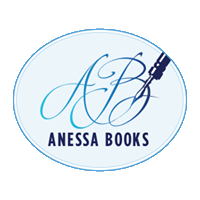
The hardest part of being a writer of historical fiction is the research.
Oh, it’s not always difficult to find resources or to go through them searching for the answers to my questions. No, the hardest part of research is stopping—stopping going through all the resources I’ve found, being satisfied with the fifth time I’ve read that things were done a particular way or looked a certain or said this way—whatever it was I was looking up.
Research can be a black hole that sucks you in and doesn’t let go.
But you have to be strong. One more resource won’t give you a different answer closer to the one you were hoping for. One more resource won’t give you any more detail so that you can write your scene with just that much more realism.
There are, of course, different types of historical novels and a continuum in the level of historical accuracy.
You can have a historical work of fiction which recreates an actual event with the addition of what the author thought the participants actually said. This is the purest form of historical fiction: real events, invented dialogue. My hat off to authors who write such historical fiction. It takes a great deal of study and knowledge of the historical events depicted. It takes using original resources—diaries, maps, newspaper articles, and other first-hand accounts of the event being written about.
Then there is historical romance, history mystery, and other historical sub-genres. These books fall along that continuum I mentioned before. Many contain references to historical events or possibly even real people in fictional situations. The books are researched thoroughly to reflect the way people actually lived during the time the book is set, but it entirely depends on the author and the story how close the story adheres to what is known about the time period.
I find it fascinating what readers will accept in their historical novels—how closely a book adheres to facts. Some readers expect a thoroughly researched book and will complain bitterly in their reviews if any aspect of historical accuracy is off. Others recognize that the novel is a work of fiction and it is up to the author how closely they follow what we know of how people lived.
If you are a writer of historical genre-fiction, I strongly recommend staying as close to reality as you can. Read reputable sources (original if possible) for your information and please, please do not rely on other novels in your genre for your research—it is entirely likely that the author made up some of the “facts” in their work (famously Georgette Heyer, who did do her own original research when she wrote her Regency romances, caught out other authors who were using her books instead of doing their own research. She would create her own phrases and slang, and deliberately put in fictional information as if it were historical fact in order to tell who was copying from her books.)
I also highly recommend adding in an author’s note in the back stating where you got your information and if you’ve changed any of the information you put into the book. Although I do need to warn you, not all readers read the author’s note—I’ve gotten some nasty reviews stating that tools I have my characters use weren’t yet invented in the year I set my book. If the reviewer had read my author’s note, however, they would have read that I was aware of that and had deliberately changed history to fit my story. Sigh…
Do be warned that readers (especially readers of Regency romance, which is a very popular sub-genre) are very knowledgeable and don’t like it when rules are not adhered to. You can’t have your characters show up at Almacks dressed inappropriately, you can’t have the son of a Marquess called Mr. Lastname (he should be Lord Firstname).
So, do your research, yes! But know when to stop, as well. And most of all, have fun sprinkling all that delicious factual information into your novel.

Kudos!!!!!!
and Thank you!
You are not The Provider of My Profound longing.” I took a full breath and grinned. “You are my deepest longing.
History is that sureness created where the blemishes of memory meet the insufficiencies of documentation.